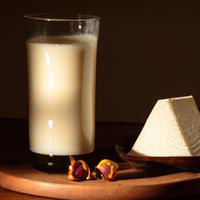
1 serving (244 grams) contains 168 calories, 9.0 grams of protein, 10.0 grams of fat, and 11.0 grams of carbohydrates.

Log this food in SnapCalorie

Nutrition Information
Calories |
168.0 | ||
|---|---|---|---|
% Daily Value* |
|||
| Total Fat | 10.0 g | 12% | |
| Saturated Fat | 6.5 g | 32% | |
| Polyunsaturated Fat | 0 g | ||
| Cholesterol | 27.0 mg | 9% | |
| Sodium | 115.0 mg | 5% | |
| Total Carbohydrates | 11 g | 4% | |
| Dietary Fiber | 0 g | 0% | |
| Sugars | 11 g | ||
| protein | 9.0 g | 18% | |
| Vitamin D | 29.0 mcg | 145% | |
| Calcium | 327 mg | 25% | |
| Iron | 0.1 mg | 0% | |
| Potassium | 498.0 mg | 10% | |
* Percent Daily Values are based on a 2,000 calorie diet. Your daily values may be higher or lower depending on your calorie needs.
Food Attributes
Source of Calories
About One glass of goats milk
One glass of goat's milk, typically around 8 ounces, offers a nutrient-rich alternative to cow's milk. Originating from ancient farming cultures, goat's milk is popular in Mediterranean, Middle Eastern, and African cuisines. It is packed with essential vitamins and minerals like calcium, phosphorus, potassium, and vitamin A, which contribute to bone health, immune support, and overall wellness. Naturally lower in lactose than cow's milk, it can be a gentler option for individuals with mild lactose sensitivities. Additionally, its smaller fat globules and higher levels of medium-chain fatty acids aid digestion and energy utilization. Goat's milk also contains a good amount of protein, making it beneficial for muscle repair and growth. However, it is relatively higher in saturated fat and calories compared to skimmed cow's milk, so portion awareness is important for those managing fat intake or weight.



